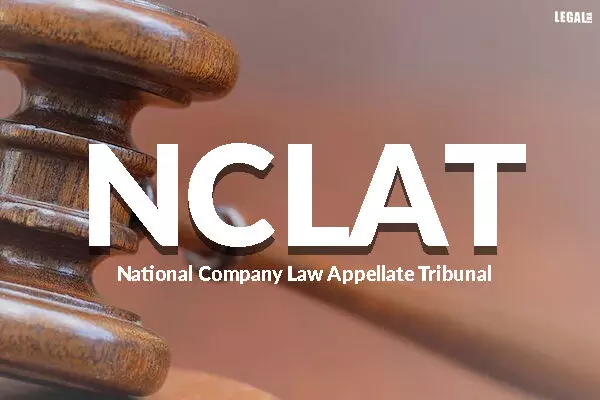- Home
- News
- Articles+
- Aerospace
- Artificial Intelligence
- Agriculture
- Alternate Dispute Resolution
- Arbitration & Mediation
- Banking and Finance
- Bankruptcy
- Book Review
- Bribery & Corruption
- Commercial Litigation
- Competition Law
- Conference Reports
- Consumer Products
- Contract
- Corporate Governance
- Corporate Law
- Covid-19
- Cryptocurrency
- Cybersecurity
- Data Protection
- Defence
- Digital Economy
- E-commerce
- Employment Law
- Energy and Natural Resources
- Entertainment and Sports Law
- Environmental Law
- Environmental, Social, and Governance
- Foreign Direct Investment
- Food and Beverage
- Gaming
- Health Care
- IBC Diaries
- In Focus
- Inclusion & Diversity
- Insurance Law
- Intellectual Property
- International Law
- IP & Tech Era
- Know the Law
- Labour Laws
- Law & Policy and Regulation
- Litigation
- Litigation Funding
- Manufacturing
- Mergers & Acquisitions
- NFTs
- Privacy
- Private Equity
- Project Finance
- Real Estate
- Risk and Compliance
- Student Corner
- Take On Board
- Tax
- Technology Media and Telecom
- Tributes
- Viewpoint
- Zoom In
- Law Firms
- In-House
- Rankings
- E-Magazine
- Legal Era TV
- Events
- Middle East
- Africa
- News
- Articles
- Aerospace
- Artificial Intelligence
- Agriculture
- Alternate Dispute Resolution
- Arbitration & Mediation
- Banking and Finance
- Bankruptcy
- Book Review
- Bribery & Corruption
- Commercial Litigation
- Competition Law
- Conference Reports
- Consumer Products
- Contract
- Corporate Governance
- Corporate Law
- Covid-19
- Cryptocurrency
- Cybersecurity
- Data Protection
- Defence
- Digital Economy
- E-commerce
- Employment Law
- Energy and Natural Resources
- Entertainment and Sports Law
- Environmental Law
- Environmental, Social, and Governance
- Foreign Direct Investment
- Food and Beverage
- Gaming
- Health Care
- IBC Diaries
- In Focus
- Inclusion & Diversity
- Insurance Law
- Intellectual Property
- International Law
- IP & Tech Era
- Know the Law
- Labour Laws
- Law & Policy and Regulation
- Litigation
- Litigation Funding
- Manufacturing
- Mergers & Acquisitions
- NFTs
- Privacy
- Private Equity
- Project Finance
- Real Estate
- Risk and Compliance
- Student Corner
- Take On Board
- Tax
- Technology Media and Telecom
- Tributes
- Viewpoint
- Zoom In
- Law Firms
- In-House
- Rankings
- E-Magazine
- Legal Era TV
- Events
- Middle East
- Africa
NCLAT, Chennai: Suspended Board of Directors not lawful To Replace RP

NCLAT, Chennai: Suspended Board of Directors not lawful To Replace RP
In Anil Kumar Ojha v. Chandramouli Ramasubramaniam Resolution Professional of SLO Industrial Ltd. & the NCLAT, Chennai in a Bench of Justice M. Venugopal, Judicial Member and Kanthi Narahari, Technical Member unanimously decided this case; Anr. Under the IBC, it was held that the suspended Board of Directors is not authorized to appoint a Resolution Professional. Until now, the Committee of Creditors and the Adjudicating Authority have been the only parties with this authority.
In its order under section 60(5) of the IBC, the NCLAT has rejected the appeal filed by the Appellant challenging the order of the Adjudicating Authority that refused to accept the Appellant's application and held that the suspended Board of Directors did not have any right to change the RP and imposed a cost of Rs. 1 lakh on the Appellant.
Appointment Of RP
According to the Bench, Section 22 of the Code allows the appointment of the Resolution Professional to be made by the financial creditors. On the first meeting of the CoC, the RP will be appointed. If the CoC votes 66percent in favour of replacing the Interim Resolution Professional, the Interim Resolution Professional can continue. If you wish to replace the IRP, you should address your application to the Adjudicating Authority, which will send it to the IBBI for confirmation. The RP shall be appointed once confirmation is received.
Appointment Of RP
During the CIRP Section 27, the CoC may replace the RP with a majority vote of 66percent by voting against it. Therefore, the CoC has the authority to displace the RP. Adjudicating Authorities are called upon in case the CoC fails to propose a name, in that case, the IBBI must propose a name.
According to the Tribunal, a suspended Board of Directors does not have the right to replace an RP under the IBC.
Appellant's counsel was Ms. C. Jayachithra, Advocate



